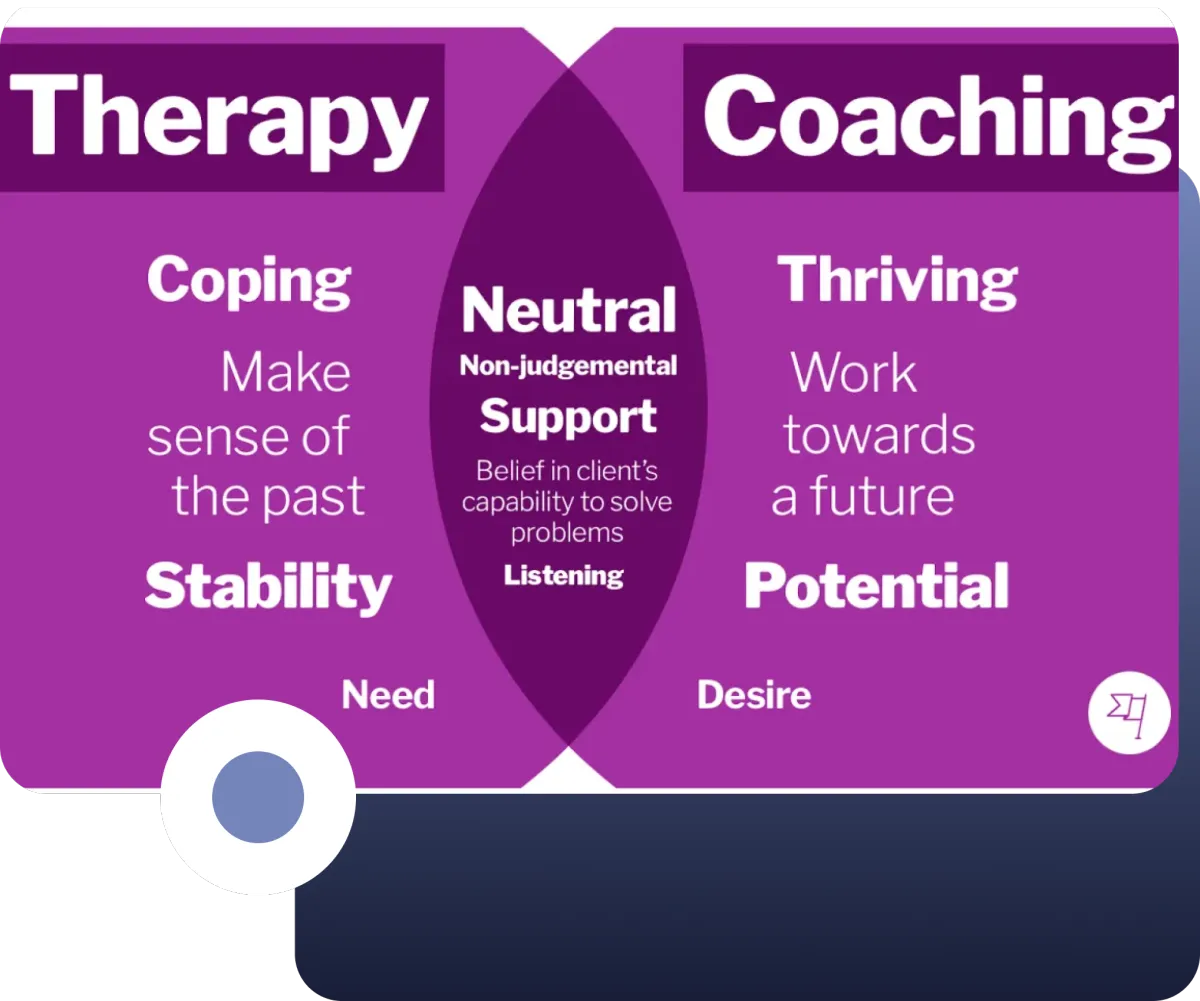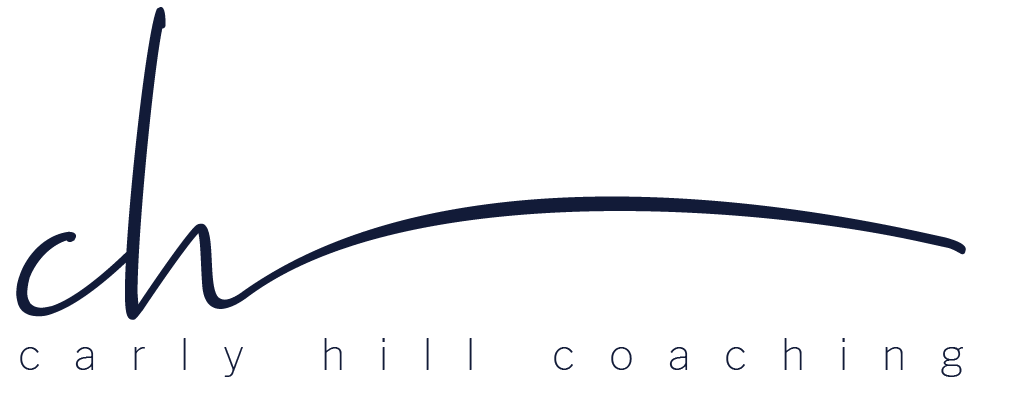Carly Hill Takes you From Therapist to Coach with 3x the income
Why Adding Coaching Services Could Be a Game-Changer

FSDAVCFEBFEVSDDVFSD

FSDAVCFEBFEVSDDVFSD

FSDAVCFEBFEVSDDVFSD
Evolving Practices and Trends Transforming Therapy

The future of therapy is seeing a transformative shift with the integration of coaching services, profoundly impacting traditional mental health practices. This evolution demonstrates how therapists are increasingly embracing dual roles to increase both client engagement and therapeutic outcomes, effectively expanding therapy practice. Integrating coaching as a game-changer within therapeutic settings allows for a dynamic expansion of traditional methods.
This strategy not only enriches therapeutic techniques but also broadens the scope for achieving diverse client outcomes. The seamless integration of therapy and coaching empowers clients with effective tools for both personal and professional success, marking a significant departure from conventional therapy approaches, and positioning therapists as leaders in the evolving therapy services landscape.

Maximizing the Growth of Therapy Practices
The integration of coaching into therapy practices is not just a trend, it's becoming a fundamental shift in how therapists increase their services and client relationships. This strategic move broadens the scope of traditional therapy, making it more comprehensive by addressing both the mental and personal development needs of clients, and highlighting the importance of balancing therapy and coaching.
As this practice gains traction, it sets new standards in client care, offering a more holistic approach to mental health services. Therapists are increasingly incorporating coaching techniques into their practices, blending psychological insights with actionable coaching strategies. This fusion is proving beneficial for client satisfaction and service delivery, allowing clients to not only work through personal issues but also achieve personal growth and professional goals. This holistic approach marks a significant development in therapy practices, increasing the overall effectiveness and appeal of therapy sessions.
The shift towards integrating coaching offers therapists new avenues for business growth. By adopting coaching services, therapists can explore new business models and develop diverse revenue streams. Offering tailored coaching packages or conducting group sessions allows therapists to diversify their practice, which can lead to increased income and job satisfaction while reducing the risk of burnout. This strategic diversification of services not only boosts the therapist's financial well-being but also enriches their professional experience by introducing variety and new challenges into their daily activities, increasing therapist's business strategy.
The State of Therapy and Coaching in Evolving World

The blending of therapy and coaching reflects a significant shift in mental health care, aimed at meeting the complex needs of today's society. Therapists with coaching skills are now better equipped to provide broader and more dynamic support. This shift not only increases client care but also enriches the therapist's ability to address various client goals effectively.
Therapists must stay current with both therapeutic and coaching developments to integrate these disciplines successfully, positioning themselves as forward-thinking practitioners. Adapting their practices to include coaching principles enriches their professional toolkit, making their services more versatile and relevant in the changing landscape of healthcare.
As therapy and coaching practices evolve, therapists are increasingly turning to advanced technology to increase their services, reflecting the ongoing therapist coaching trend.

The use of sophisticated online platforms and data analytics tools is becoming commonplace, enabling therapists to extend their reach and offer customized, client-centered coaching experiences. These technologies facilitate the collection and analysis of client data, allowing therapists to tailor their sessions more precisely to individual needs and track progress over time. The result is a therapy and coaching practice that is not only more responsive but also more efficient, leveraging technology to provide care that truly aligns with each client's unique circumstances.
However, the integration of such technology also brings with it a host of ethical considerations. Therapists must navigate the complexities of maintaining confidentiality and building trust in a digital age. This includes verifying that all online platforms and communication channels are secure, protecting client data from breaches, and adhering to privacy laws and standards such as HIPAA. Therapists must be transparent with clients about how their data is being used and obtain informed consent for its use. Upholding these ethical standards is difficult, as it helps maintain the integrity of therapeutic relationships and fosters a safe environment where clients feel confident that their personal information is protected.
Facing Barriers in Integrated Practices
As therapists blend coaching techniques with traditional therapy, they encounter several challenges in maintaining clear professional roles. Therapists must communicate effectively with clients about the goals and methods of each session. This clarity helps to maintain the necessary boundaries between therapeutic and coaching roles, verifying that both therapists and clients have a mutual understanding of the session's objectives. Integrating coaching into therapy requires therapists to gain specific skills that may not be covered in traditional therapy training.
This gap highlights the need for ongoing education and possibly obtaining new certifications, reinforcing the need for evolving therapy services. Therapists must actively seek out training opportunities in coaching to verify they provide the highest quality of care across both disciplines. This dual competence not only enriches their professional capabilities but also increases the overall effectiveness of their practice by enabling them to address a broader range of client issues and goals, contributing to the future of therapy.
Maximizing Therapy Through Group Coaching Dynamics
Group coaching introduces a dynamic component to therapy by allowing therapists to engage with multiple clients simultaneously, expanding therapy practice opportunities. This format not only increases the efficiency of therapeutic sessions but also enriches the experience for all participants. In a group setting, clients benefit from the collective insights and shared experiences of their peers, which can reinforce personal growth and emotional support.
Group coaching makes therapeutic support more accessible and cost-effective, broadening the potential reach of therapy practices. This communal approach fosters a supportive atmosphere that can significantly amplify the therapeutic benefits, making it an invaluable addition to traditional individual therapy sessions and demonstrating the expanding role of the therapist coaching trend.


How to Maximize the System of Therapy and Coaching
Integrating coaching into traditional therapy equips therapists with a versatile tool to significantly increase the impact of their practice. This approach fosters more dynamic interactions with clients who are increasingly looking for services that not only address mental health issues but also support personal development and life satisfaction, highlighting the importance of therapy coaching integration.
Coaches are adapting to these client needs by offering tailored, actionable strategies that go beyond traditional therapy. Strategic planning is important to verify that coaching effectively complements therapeutic goals rather than competes with them. Therapists are encouraged to structure their services thoughtfully, possibly by designating specific sessions for coaching or integrating it into existing treatment plans. This thoughtful integration helps maintain the integrity of both modalities while maximizing their benefits.
The successful integration of coaching into therapy heavily relies on the therapist's ability to adapt to the market's demands and their client's evolving needs. Continuous professional development and staying informed about the latest trends in both therapy and coaching are necessary for therapists aiming to excel in this expanded role. Trends indicate a growing emphasis on specialization within coaching, data-driven approaches, and the strategic use of technology to increase the coaching experience, verifying therapist coach's future relevance.
By embracing these evolving practices, therapists can better meet the complex needs of their clients, verifying that their services remain relevant and highly effective in today’s rapidly changing healthcare landscape, furthering the integration of coaching as a game-changer.
What’s next in Integrated Therapy

The integration of coaching within therapy is crafting a new paradigm in mental health services, fostering a comprehensive approach to individual well-being. This evolution is fueled by the growing acknowledgment that mental health and personal growth are deeply intertwined. By incorporating coaching principles, therapists can offer more than symptom relief; they equip clients with the tools needed for personal development and achieving life goals, increasing overall life satisfaction and demonstrating the expanding scope of therapist coaching trends. To maintain relevance in this rapidly evolving field, therapists must embrace both new technologies and innovative methodologies.

Wrapping up the Therapy and Coaching
The blending of therapy and coaching marks a transformative evolution in the mental health field, offering a more encompassing approach to care and solidifying the future of therapy. Therapists adopting this integrated model are poised to address a broader spectrum of client needs, effectively bridging the gap between mental health recovery and personal development, and showing the importance of balancing therapy and coaching.
This dual approach not only aids clients in overcoming psychological barriers but also supports them in achieving personal goals, increasing overall life satisfaction and well-being. As the distinctions between therapy and coaching continue to blur, therapists navigating this combined landscape are setting new benchmarks for holistic mental health care.

Carly Hill
LCSW; Author
Stay Up-to-date with our Content
Subscribe to learn more about our mission!
Stay Up-to-date With Our Content
Subscribe to learn more!
Free Resources
Free Resources
Copyright © 2026 Carly Hill Coaching LLC


